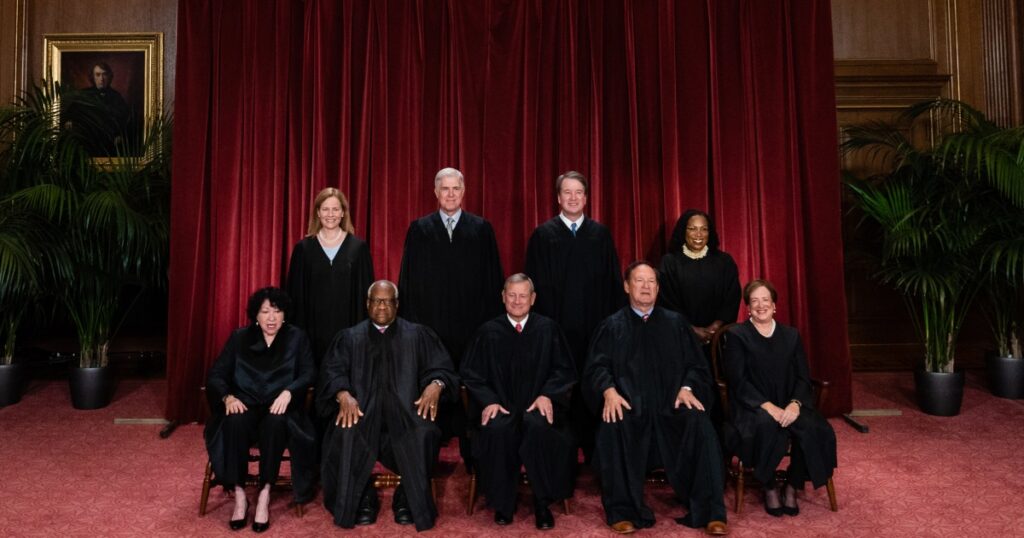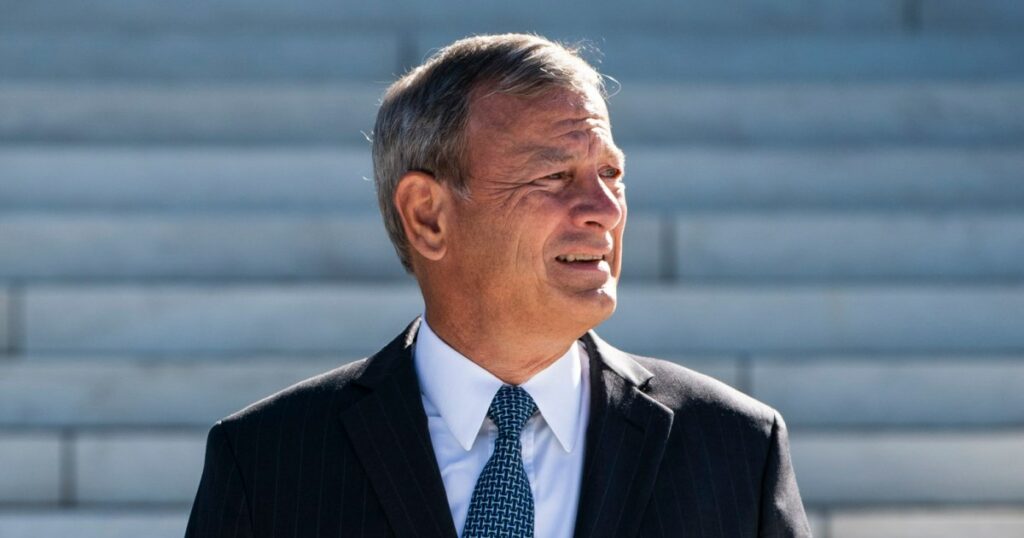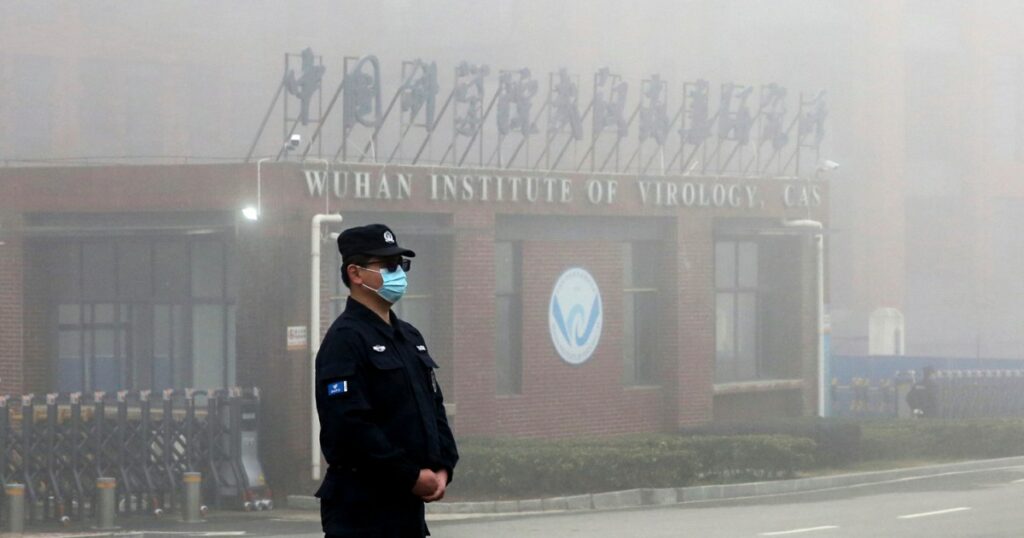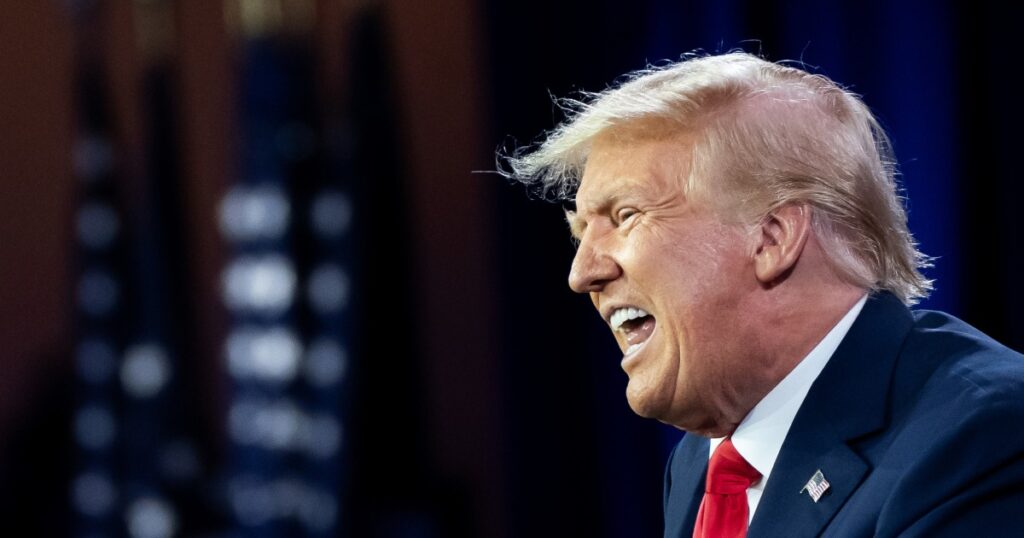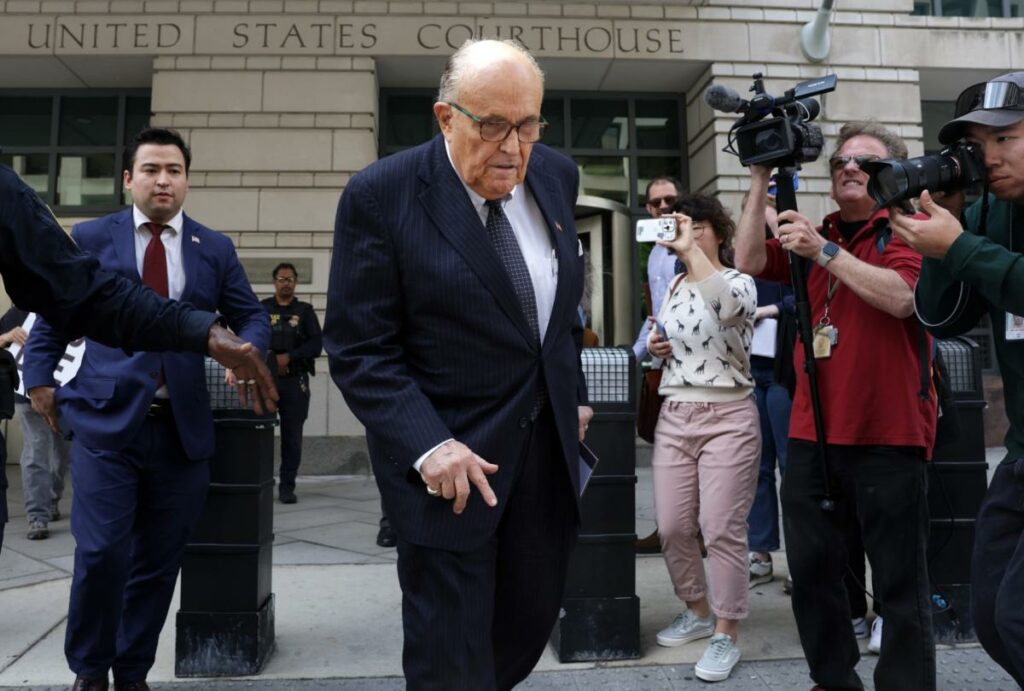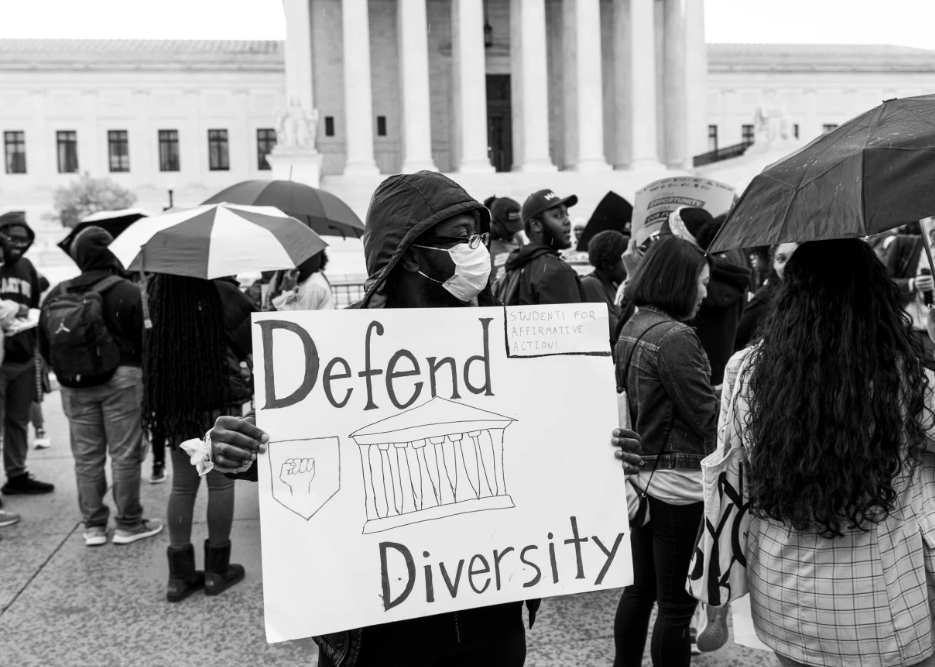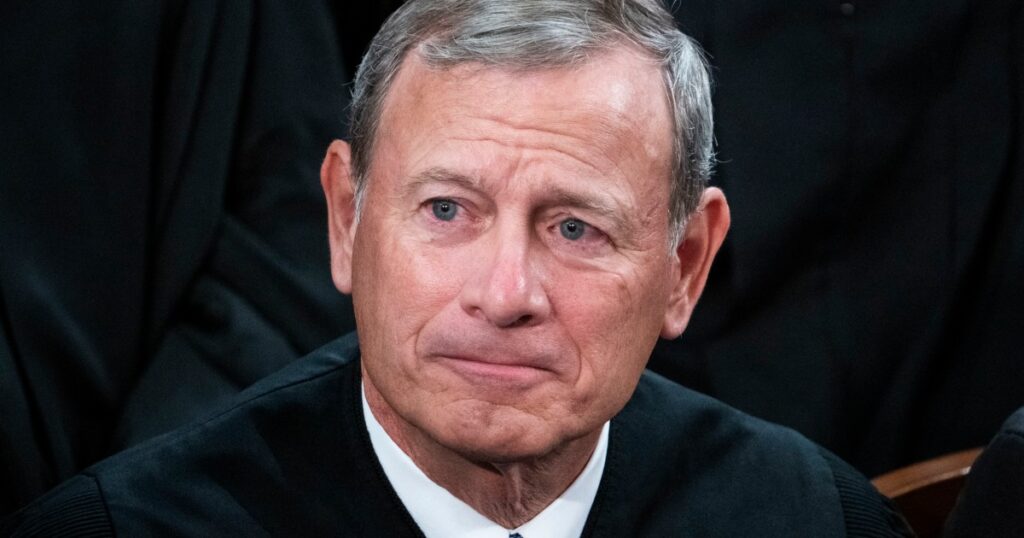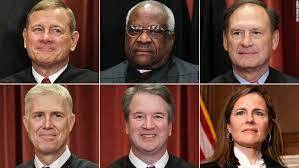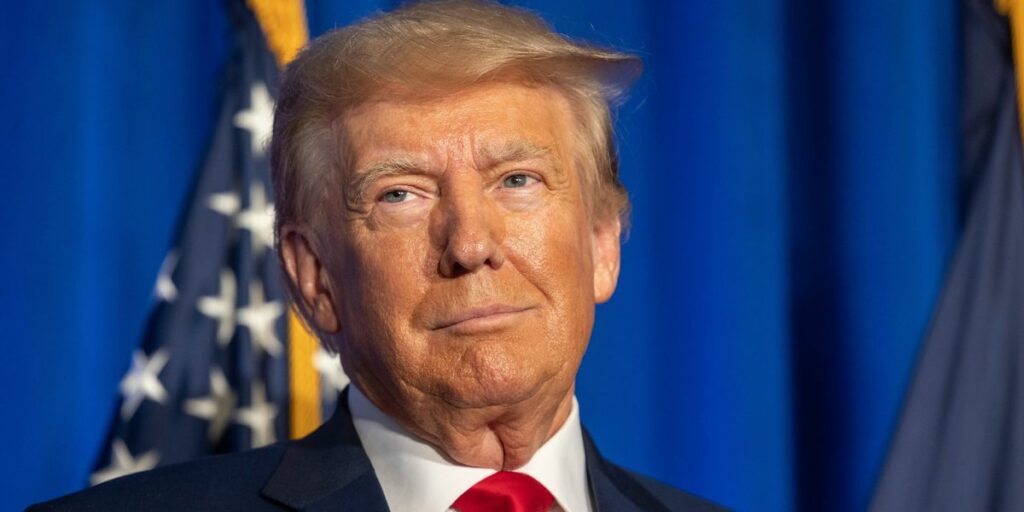Supreme Court’s Silent Power: The Cases They Turned Away
The Supreme Court’s final decisions of the term may have grabbed the headlines, but it’s the cases they decided not to hear that reveal the true power of the court. In a recent “order list,” the majority effectively made a series of decisions by simply refusing to make them at all. And with Republicans holding a 6-3 majority, the implications are significant. Here are some of the cases the court denied, and what it means for issues like voting rights, jury bias, and qualified immunity.
1. Felon disenfranchisement in Harness v. Watson
The court rejected a challenge to voting rights rules in Mississippi, allowing a racist relic from 1890 to stand. The state constitution listed crimes that would lead to disenfranchisement, with the belief that Black people would be convicted more than white people. Justice Ketanji Brown Jackson called out the majority’s hypocrisy, pointing to their embrace of equality in the affirmative action ruling the day before. This decision is a blow to voting rights and raises questions about the court’s commitment to equality.
2. Jury bias in Clark v. Mississippi
Mississippi’s history with racism in jury selection is well-documented, and this case highlights the state’s failure to learn from past mistakes. Despite a previous Supreme Court ruling that a Black prospective juror should not have been excluded, the state court ignored the precedent. Justice Sonia Sotomayor expressed her concern that a Black man will be put to death based on a jury that may have been selected based on race. The court’s refusal to intervene raises serious questions about justice and fairness in the criminal justice system.
3. Qualified immunity
The controversial doctrine of qualified immunity, which shields law enforcement from civil accountability, was also at the center of two cases the court declined to hear. Justice Sotomayor argued that this doctrine becomes an absolute shield for unjustified killings and other grave constitutional violations. In one case, a Black man was fatally shot in the back by police, while in the other, a man died in police custody. Sotomayor’s dissent highlights the need for accountability and justice in cases involving law enforcement.
The court’s decision to turn away these cases speaks volumes about their priorities and the power they hold over the legal landscape. By not making decisions on important issues like voting rights, jury bias, and qualified immunity, the court effectively shapes the law without even uttering a word. It is a reminder that the Supreme Court’s influence extends far beyond the cases they choose to hear, and it raises concerns about the direction of justice in our country.
Title: Revealing the Supreme Court’s Priorities: GOP Justices Reject Voting Rights and Jury Bias Appeals
Introduction:
The United States Supreme Court, as the highest judicial authority in the nation, plays a crucial role in shaping the legal landscape and safeguarding the principles of justice and equality. However, recent decisions by the Court’s conservative majority have raised concerns about its priorities, particularly in relation to voting rights and addressing jury bias. This article aims to shed light on the Supreme Court’s stance on these critical issues and the potential implications for American democracy.
Voting Rights:
The right to vote is the cornerstone of any democratic society, ensuring that citizens have a voice in shaping their government. Yet, in recent years, numerous states have implemented restrictive voting laws, disproportionately affecting marginalized communities. Despite these challenges, the Supreme Court’s conservative justices have consistently rejected appeals seeking to protect and expand voting rights.
One notable case was the 2013 ruling in Shelby County v. Holder, which struck down a key provision of the Voting Rights Act of 1965. This decision effectively weakened federal oversight of states with a history of discriminatory voting practices, allowing them to enact restrictive laws without sufficient scrutiny. Subsequent rulings, such as Husted v. A. Philip Randolph Institute (2018) and Brnovich v. Democratic National Committee (2021), further eroded voting rights protections, making it increasingly difficult for marginalized communities to exercise their right to vote.
Jury Bias:
The principle of an impartial jury is fundamental to ensuring fair and just trials. However, concerns about racial bias in jury selection persist, with studies consistently revealing disparities in the representation of minority groups. Despite these concerns, the Supreme Court’s conservative justices have shown a reluctance to address the issue adequately.
In the 2017 case of Peña-Rodriguez v. Colorado, the Court had an opportunity to confront racial bias in jury deliberations. However, the conservative majority ruled that the secrecy of jury deliberations outweighed the need to address racial bias, effectively denying justice to individuals who may have been unfairly convicted due to discriminatory jury practices. This decision sent a troubling message that the Court is unwilling to prioritize the fight against systemic racism within the criminal justice system.
Implications for American Democracy:
The rejection of voting rights appeals and the reluctance to address jury bias by the Supreme Court’s conservative justices raise serious concerns about the Court’s priorities. These decisions disproportionately impact marginalized communities, perpetuating systemic inequalities and undermining the principles of democracy and equal representation.
By weakening voting rights protections, the Court’s conservative majority risks disenfranchising millions of Americans, particularly people of color, the elderly, and low-income individuals. This erosion of voting rights threatens to undermine the very foundation of democracy, as it restricts the ability of citizens to participate fully in the democratic process.
Similarly, the Court’s failure to address racial bias in jury selection perpetuates a justice system that disproportionately targets and convicts individuals from marginalized communities. This not only undermines public trust in the judiciary but also perpetuates systemic racism and denies justice to those who need it most.
Conclusion:
The Supreme Court’s recent decisions regarding voting rights and jury bias appeals have revealed a concerning set of priorities among its conservative justices. By rejecting efforts to protect and expand voting rights and failing to address racial bias in jury selection, the Court risks undermining the principles of democracy and equal justice for all. It is imperative that the Court reevaluates its stance on these critical issues to ensure that the rights and voices of all Americans are protected and upheld. Only through a commitment to justice and equality can the Supreme Court fulfill its duty as the guardian of the nation’s highest legal principles.

